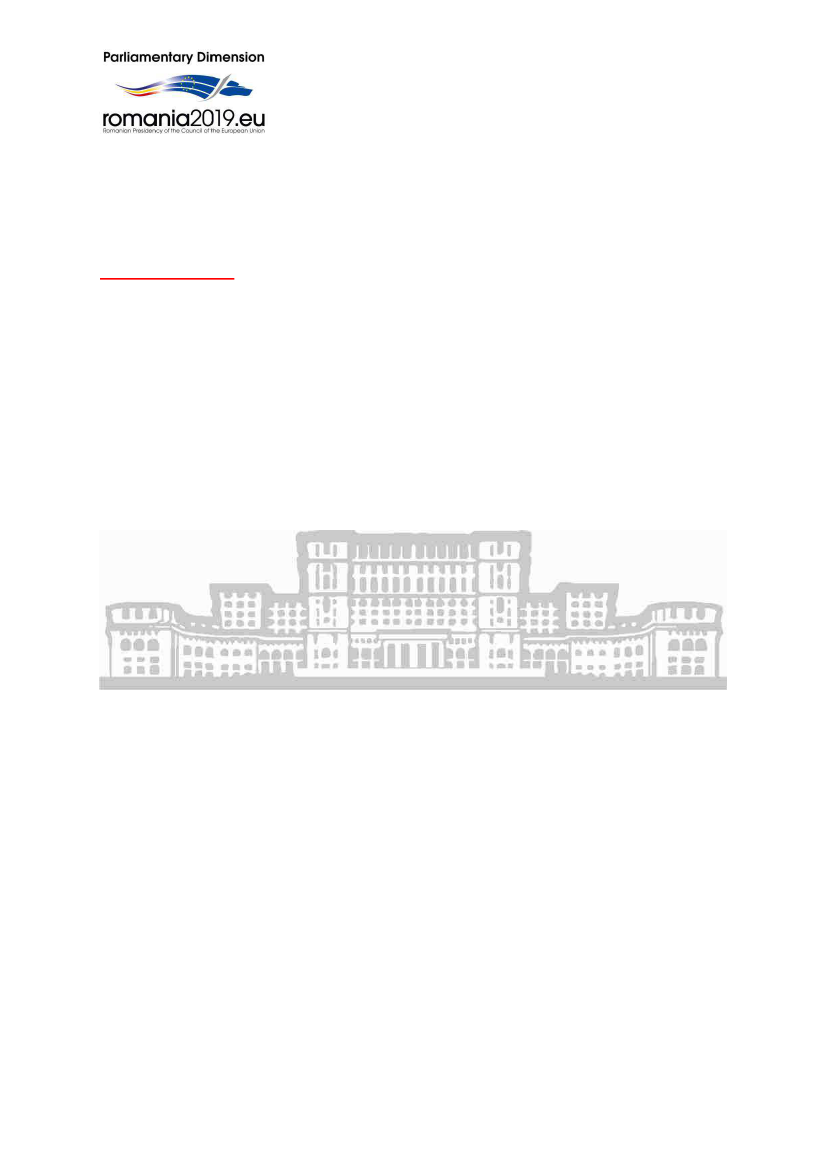
Inter-Parliamentary Conference for the Common Foreign and Security Policy
and the Common Security and Defence Policy
Bucharest, 7
–
8 March 2019
Opening session
The Inter-Parliamentary Conference for the Common Foreign and Security Policy
and the Common Security and Defence Policy (CFSP/CSDP), which took place on
7th and 8th of March 2019 in Bucharest, was attended by 119 parliamentarians from
27 EU Member States, the European Parliament, and observers. The Conference
covered important topics, such as: the Eastern Partnership, the importance of the
Black Sea on the EU agenda,
CSDP’s
mechanism and instruments, as well as the
EU commitment to the Western Balkan. Four workshops dealt with the future of
CFSP/CSDP from Brexit perspective, EU Strategy for the Danube Region, cyber
security and hybrid warfare, and military mobility.
In his welcoming address,
Mr. Călin Popescu-Tăriceanu,
President of the
Romanian Senate,
stated that parliaments need to be more decisive players in the
European eastern and southern neighbourhoods in order to assure that the
European partners have the means to promote and defend democracy, freedom and
human dignity. Mr.
Tăriceanu welcomed the determination, perseverance and
courage demonstrated by the political and civic actors that have enabled the
implementation of the Prespa Agreement - an important cornerstone of peace and
security in South-Eastern Europe. He called for the Western Balkan countries to
overcome their differences so that the European Union’s sustainable commitment to
internal and external reconciliation may be reconfirmed as preconditions for EU
membership. Mr. Tăriceanu
emphasized
that the Black Sea region is one of the most
important to EU security, a reason for European institutions to increase their visibility
in policies and adopt a clearer and better-articulated regional approach. He stated
that the militarisation of the Azov Sea is an aspect of aggression and violation of
international law that threatens the security of the entire region. He highlighted that
Romania has consistently acted to influence positively the course of the Republic of
Moldova towards EU accession also by supporting national efforts to bring the
Moldovan institutions up to European standards, as well as by strengthening cultural,
economic and social interconnections. Furthermore, Mr
Tăriceanu called
for the
group of friends of the Republic of Moldova to continue to be active in the changing
post-electoral political context. He also underlined that cyber-attacks and threats of
hybrid war are important challenges that has to be met in common and for which
appropriate responses should be prepared through the Common Security and
Defence Policy.
Mr. Florin Iordache, Vice-President of the Romanian Chamber of Deputies,
stated that during the presidency of the EU Council, Romania took important steps to
support and strengthen the EU global role: promoting the enlargement policy and
EU's action in the neighbourhood, continuing to support the implementation of the
EU’s Global Strategy,
as well as supporting actions in the field of defence capacity